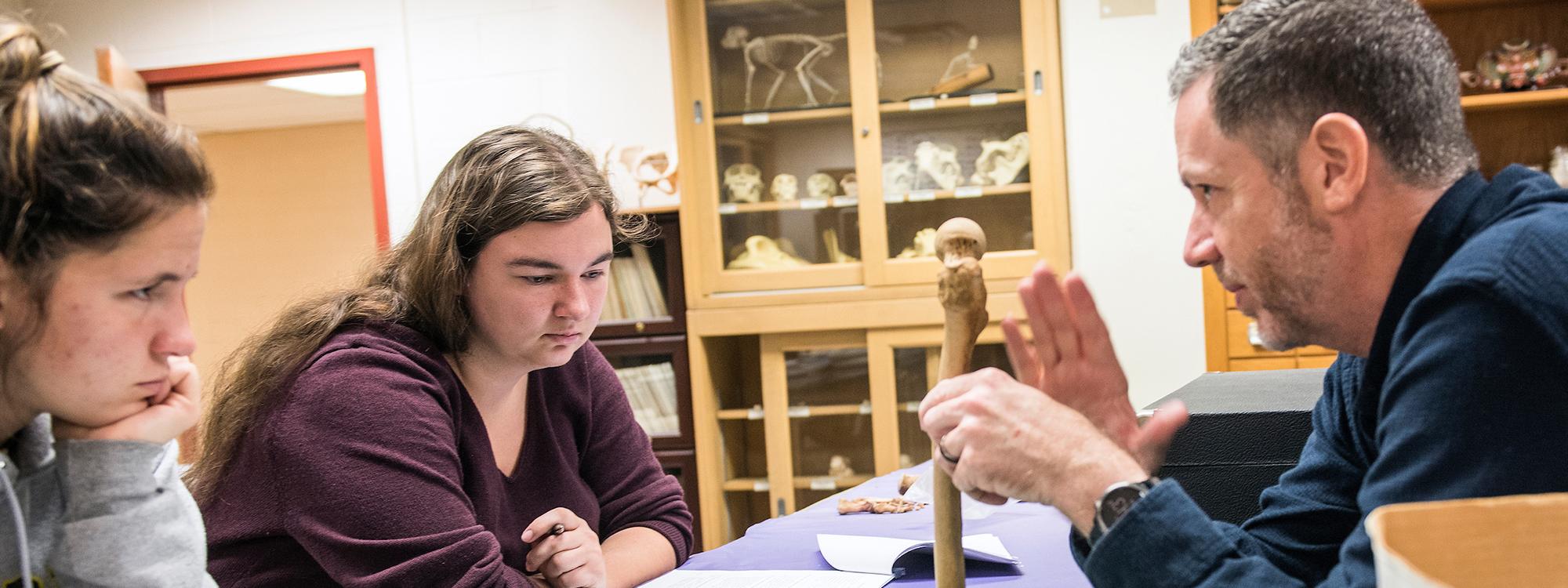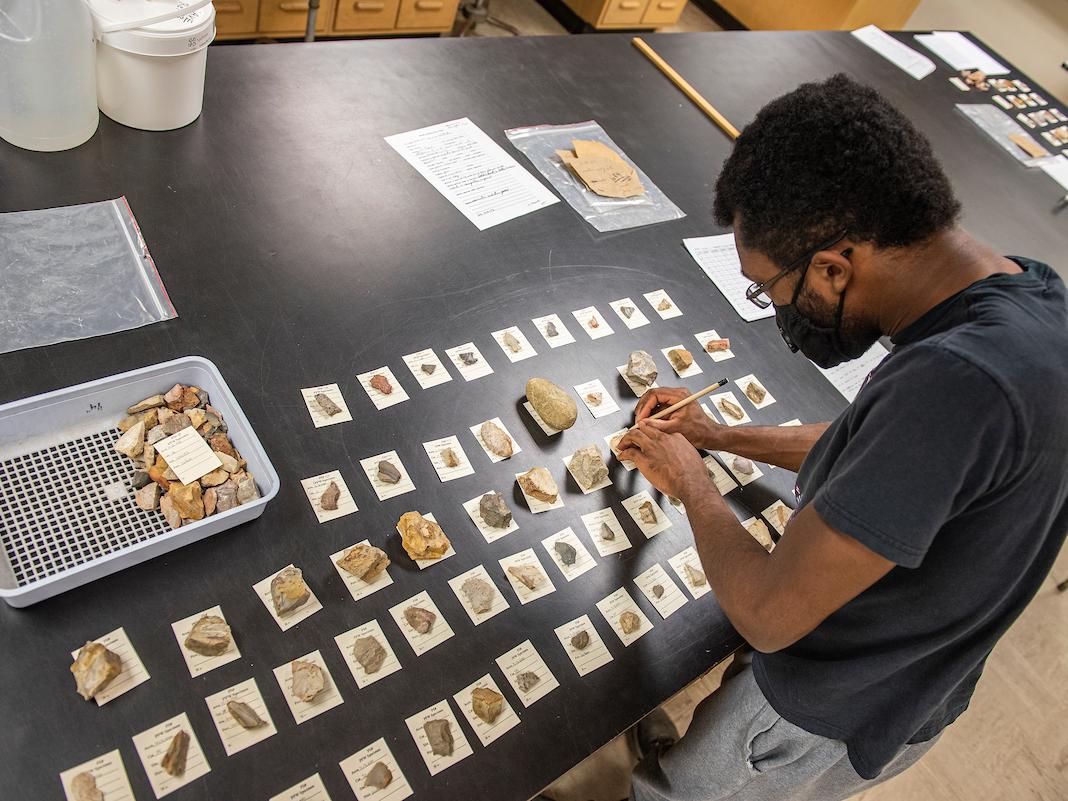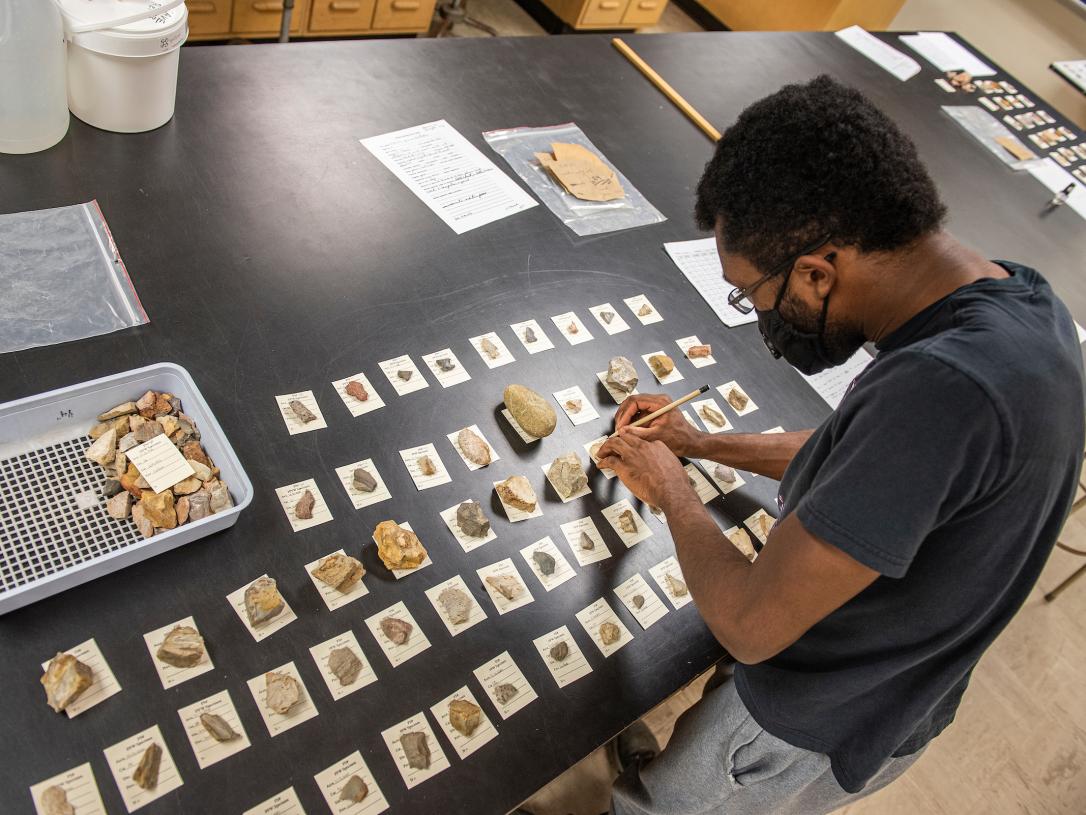
Anthropology and Sociology Programs
Study what fascinates you while acquiring a strong liberal arts background.
The skills you’ll learn through our programs are essential to many different careers, which opens more doors than you may think.

Sociology (B.A.)
If you’re interested in any career that requires an understanding of why people act the way they do, you should consider majoring in sociology. Here, we study society, the groups within it, and the effect it all has on individual behavior. Many of our students have a natural curiosity about human behavior. If this sounds like you, you’re in the right place.

Program
Highlights
Program Highlights
- The development of observation, reasoning, critical-thinking, and research skills
- An enhanced understanding of intercultural communication skills
- Support from the Mastodon community
- A prestigious Purdue degree
career and salary data
How far will you go?
General labor market and salary data are provided by Lightcast via O*NET and may not represent the outcomes experienced by Purdue Fort Wayne graduates in these programs. Purdue Fort Wayne graduates in these programs may earn salaries substantially different or less than the amounts listed. Salary and employment outcomes vary by geographic area, previous work experience, education, and opportunities for employment that are outside Purdue Fort Wayne’s control. Purdue Fort Wayne does not guarantee employment placement, salary level, or career advancement.
Student Learning Outcomes
Upon completion of this degree, students will be able to demonstrate the following learning outcomes:
- Analyze and evaluate major theoretical perspectives in sociology
- Identify the general theoretical orientation
- Apply theoretical analyses of social structure and social processes
- Interpret social issues in terms of the major theoretical perspectives
- Utilize and evaluate research methods and data analysis used in sociology
- Demonstrate appropriate use of both quantitative and qualitative methodologies
- Interpret the results of data gathering
- Demonstrate appropriate and competent use of statistical techniques and software
- Critically evaluate arguments, situations, theoretical arguments, and published research
- Develop evidence-based arguments
- Communicate effectively in both written and oral form
- Be knowledgeable of appropriate ethics concerning both professional conduct and the use of human subjects
- Demonstrate a mastery of the ethical standards for conducting research with human subjects
- Demonstrate an understanding of the ethical standards of the American Sociological Association
- Educator
- Employment or Labor Relations Specialist
- Immigration Specialist
- Policy Analyst
- Program Evaluator
- Sales and Marketing Consultant
- School Administrator
- Social Science Researcher
- Social Worker




